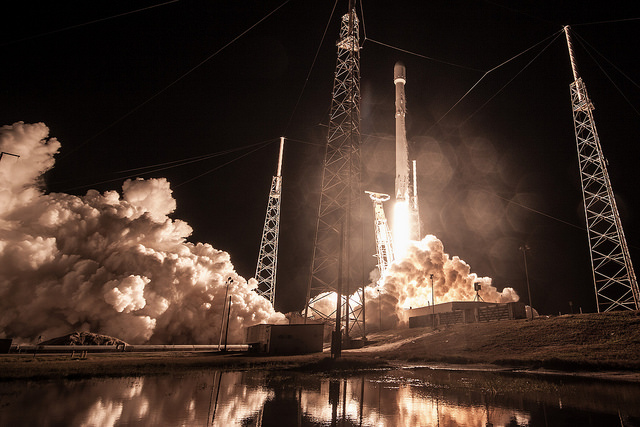An expensive, highly classified U.S. spy satellite is believed destroyed after SpaceX launch


SpaceX, Elon Musk's rocket and space exploration company, launched a highly classified spy satellite on Sunday, and it is presumed to have burned up in the Earth's atmosphere after something went wrong in the separation stage, The Wall Street Journal reported Monday night, citing industry and government officials. Members of Congress and their staff have been briefed on the "botched mission" to launch the secret satellite, code-named Zuma, the Journal reports, and one possible cause is the satellite failing to separate from the upper part of the Falcon 9 rocket as planned.
Still, "as of Monday night, nearly 24 hours after the launch, uncertainty surrounded both the mission and the fate of the satellite, which some industry officials estimated carried a price tag in the billions of dollars," The Wall Street Journal says. "The lack of details about what occurred means that some possible alternate sequence of events other than a failed separation may have been the culprit." Whatever happened to the satellite, a failure would be bad news for SpaceX, which is working to set itself up as a relatively inexpensive and reliable launch provider for the Pentagon and defense contractors like Northrop Grumman, which built the satellite and chose SpaceX as the launch provider. You can read more about the launch at The Wall Street Journal.
A free daily email with the biggest news stories of the day – and the best features from TheWeek.com
The Week
Escape your echo chamber. Get the facts behind the news, plus analysis from multiple perspectives.

Sign up for The Week's Free Newsletters
From our morning news briefing to a weekly Good News Newsletter, get the best of The Week delivered directly to your inbox.
From our morning news briefing to a weekly Good News Newsletter, get the best of The Week delivered directly to your inbox.
Peter has worked as a news and culture writer and editor at The Week since the site's launch in 2008. He covers politics, world affairs, religion and cultural currents. His journalism career began as a copy editor at a financial newswire and has included editorial positions at The New York Times Magazine, Facts on File, and Oregon State University.
-
 TikTok secures deal to remain in US
TikTok secures deal to remain in USSpeed Read ByteDance will form a US version of the popular video-sharing platform
-
 Unemployment rate ticks up amid fall job losses
Unemployment rate ticks up amid fall job lossesSpeed Read Data released by the Commerce Department indicates ‘one of the weakest American labor markets in years’
-
 US mints final penny after 232-year run
US mints final penny after 232-year runSpeed Read Production of the one-cent coin has ended
-
 Warner Bros. explores sale amid Paramount bids
Warner Bros. explores sale amid Paramount bidsSpeed Read The media giant, home to HBO and DC Studios, has received interest from multiple buying parties
-
 Gold tops $4K per ounce, signaling financial unease
Gold tops $4K per ounce, signaling financial uneaseSpeed Read Investors are worried about President Donald Trump’s trade war
-
 Electronic Arts to go private in record $55B deal
Electronic Arts to go private in record $55B dealspeed read The video game giant is behind ‘The Sims’ and ‘Madden NFL’
-
 New York court tosses Trump's $500M fraud fine
New York court tosses Trump's $500M fraud fineSpeed Read A divided appeals court threw out a hefty penalty against President Trump for fraudulently inflating his wealth
-
 Trump said to seek government stake in Intel
Trump said to seek government stake in IntelSpeed Read The president and Intel CEO Lip-Bu Tan reportedly discussed the proposal at a recent meeting


